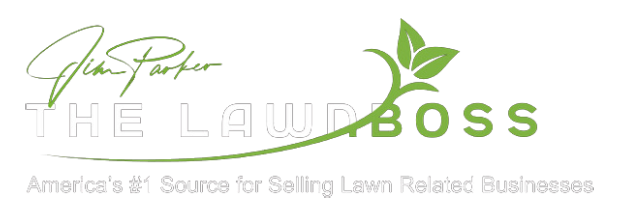When you land your first big customer, it feels like a real win. And it is – as long as it doesn’t remain your biggest account. Especially in the lawn and landscape business, having too much revenue coming from too few customers can be a red flag. Especially for buyers, if you’re thinking about selling any time in the future. Here’s why.
The lawn and landscape business is both seasonal and competitive. There’s not much differentiation between companies, so it’s easy for customers to make a change if the level of service drops over time. Even if you have a written agreement with a commercial account, it usually takes just a 30-day notice to terminate the contract and move on.
That means a big part of your monthly revenue could disappear with little notice. So, I strongly encourage landscape company owners to invest in prospecting and marketing, even after they’ve landed a couple of big accounts. Diversifying your customer base is always good business; it protects you from taking a disastrous hit if a big customer changes his mind.
If you’re wondering how diversified you should be, here’s my formula: no one customer should represent more than 15% of your revenue. I recommend that your biggest accounts be around 10% of your total revenue or less.
That means you should be out getting more customers on a regular basis, especially if you’re planning to sell within the next couple of years. It’s very tough to sell a business – even a 7-figure business – if it has just two or three big accounts. Buyers simply don’t want to take on the risk.
A lot of brokers don’t, either. I pass on working with those kinds of companies, too, even if the business is profitable. I decline because I personally invest considerable time and effort into marketing every business I list. I only take on companies that I think have a good chance of selling for a fair price.
Companies that have too much customer concentration may be unsellable. If they do sell, most buyers are going to make offers that are deeply discounted to mitigate risk. If they do offer full price, it’s almost certain that you’ll be asked to take on a significant amount of owner financing, which, of course, reduces the payout that you’ve been counting on.
Some buyers will insist on forgivable notes – a note that requires payment of principal and interest over a fixed period. These notes, though, include trigger events that could make the debt forgivable. An example might be retaining the top three customers for the next two years after closing. (Now you can see why having a few very big accounts presents such risk.)
Another way sellers structure high-risk deals is to offer earn-outs instead of paying the full asking price at once. It’s a form of owner financing that requires the seller to assume some of the risk over the first year or two of new ownership. The seller only gets the payments if the company meets revenue goals agreed to in the sales contract.
So you can see why getting your first big customer is just the beginning, rather than the end, of your story. Marketing is always going to be the lifeblood of any company, and your lawn business is no exception. It’s critical that you be aware of your customer mix at every stage of your business and that you work every day at making sure you have the right number and the right mix of customers.
You’ll have a stronger business while you own it, and a stronger chance of selling it for a great price when you’re ready.
To see what your company is worth, we offer a confidential and complimentary opinion of value.
 About the author: Jim Parker
About the author: Jim Parker
Jim Parker is an experienced business broker specializing in lawn and landscape businesses. His company is based in Clermont, Florida. As an industry leader he has served as the past president of the Business Brokers of Florida and currently sits on the International Business Brokers Association’s Board of Governors. Jim is a sought-after speaker who he teaches others in his industry best practices in ethics, closing transactions, and finding qualified buyers. He has earned over 50 awards and recognitions in his career.
He is a Certified Business Intermediary (CBI), Certified Mergers and Acquisition Professional (CMAP), Masters Certified Business Intermediary (MCBI), and is a Mergers & Acquisitions Master Intermediary (M&AMI. He is one of one of less than 20 business intermediaries in the world that have all four of these designations. To contact Jim, visit TheLawnBoss.com or call (407) 927-8999.

